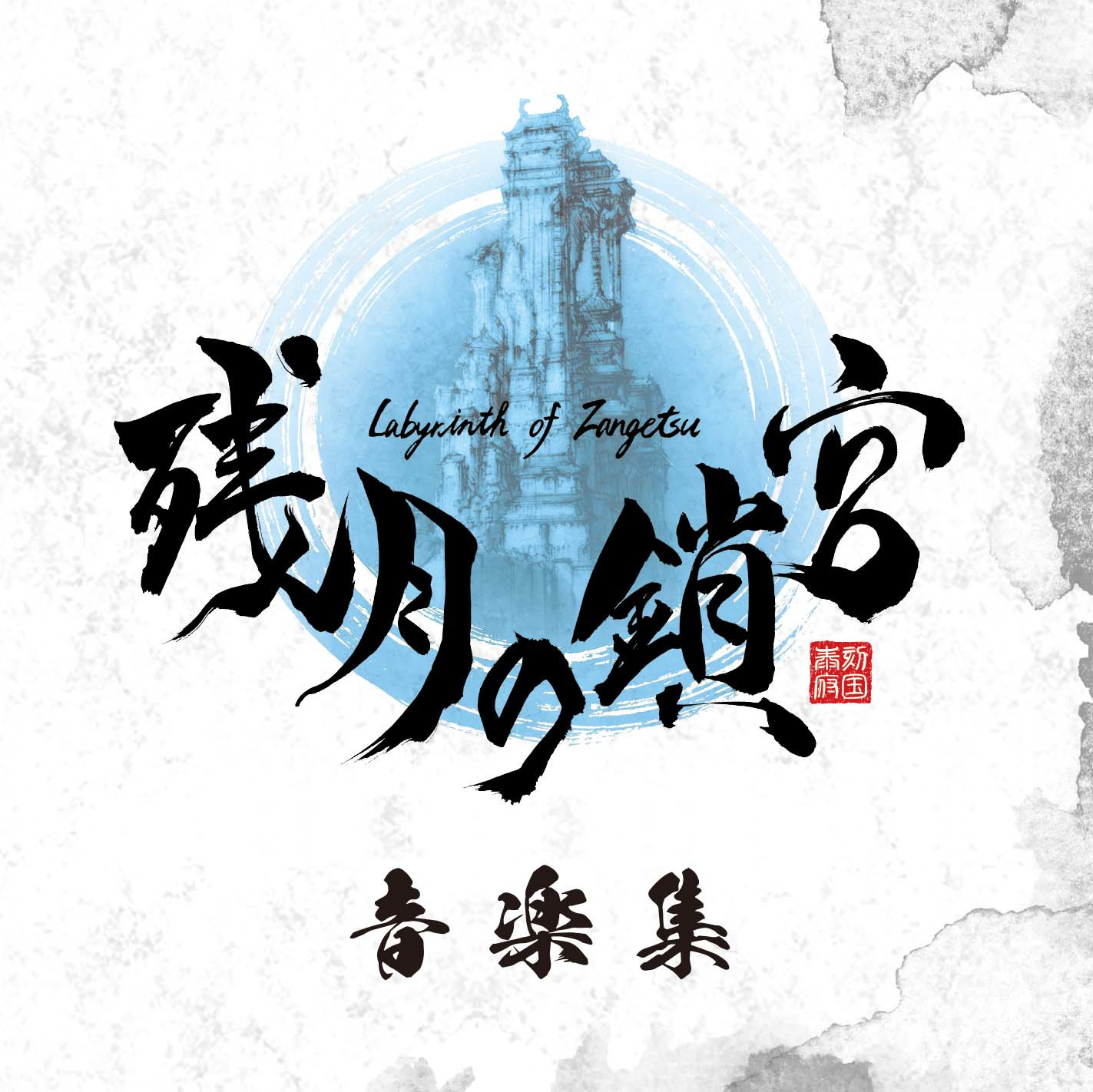Listen: when I saw there was a published soundtrack for Labyrinth of Zangetsu, no way would I let it go unreviewed. Why, you ask? Two reasons. First: the soundtrack is fully composed by Takahiro Eguchi—a prolific musician whose discography rarely includes RPGs. Having an excuse to write about Eguchi’s music on RPGFan simply made my day. What can I say? I’m a fan! His works on the SuperSweep “Nanosweep” original music series tend to be rich and layered, yet somehow still align with the electronica expected from fellow SuperSweep members (Shinji Hosoe, Ayako Saso, et al).
Second: I adore the dungeon-crawling, tile-map-making genre of RPG. You may be familiar with the long-running Wizardry series, as well as Atlus’ impressive Etrian Odyssey series. When a smaller studio makes a game of this style, however, I am ever more intrigued. Years ago, I delved deep into the strange world of Elminage, from the lesser-known Starfish development studio. As small and relatively obscure as that team was and those projects were, I think Labyrinth of Zangetsu might be even smaller. Though published and partially funded and staffed by the larger Acquire Studio, the core development for this game arose from KaeruPanda, a two-person team who have traditionally done mobile and casual games. Given how stylized Labyrinth of Zangetsu appears, with its emphasis on Japanese Yokai and Ink illustrations come to life, I had to wonder if the game’s score could match the aesthetic while also maintaining a functional element as game music.
Upon first listen, I was able to grasp the general approach. Eguchi matched the visual aesthetic with a blending of traditional Japanese instruments (shamisen, shakuhachi, koto) with synthesized string and orchestral ensembles—much like the sharp relief of the sumi-e ink blending into the modern visuals of a video game with menus and sleek visual effects. If that was the plan all along, then I think we can safely say “mission accomplished” to Takahiro Eguchi in writing a full soundtrack for this stylized dungeon crawler.
Subsequent listens allowed me to explore more deeply and specifically into some of the better compositions here. And I must note, having enjoyed Eguchi’s work outside of RPG music for over a decade, this soundtrack betrayed my expectations: not for better or worse, just genuinely different. Nonetheless, there were some stand-out moments in this soundtrack where Eguchi put his talents to work. In “Bloody Battle -Great Ink Beast Battle Theme-” (track 17), Eguchi takes the classical concept of ostinato and works it as an ensemble string loop that feels akin to an EDM looped beat. If you’re familiar with the first Drakengard soundtrack, it’s something like this, but without the use of sampled recordings. It’s less cacophonous than you may expect, and I think this has to do with the strong, slow, simple melody overlaying the ostinato string approach.
I found a powerful, evocative theme in track 8, “Zangetsu -Foreign Castle Theme-.” Utilizing chords and tones around a simple, melancholic natural minor scale, Eguchi swaps out ensemble winds and strings for nothing but solo instruments and the occasional wind chime, slowly mixing the background structure of the piece in and out like the ebb and flow of the tide. Among recent games with similarly evocative themes, I would be comfortable comparing this track to “Frostlands” from Octopath Traveler, which is high praise.
In contrast with the previous theme, track 9 comes in strong with clearly stated melodies and an uplifting sound. This song is utilized in-game as a preparation/party selection background music theme. And frankly, I hope that aspect of the game is as fun and exhilarating as the corresponding music. Again, I find myself praising Eguchi for effective use of ostinato and bringing the traditional Japanese musical elements to life.
The dungeon music I found most exciting was the two tunes written for the Kurehasu dungeon (temple garden first, then “finger,” which is a tower). These tracks, “Fusha” and “Garan,” demonstrate the breadth of Eguchi’s compositions, utilizing much of the music as scaffolding so that a beautiful centerpiece can hang high and be admired by all. That centerpiece, in most instances, is a simple but effective melody brought to life by a shakuhachi flute.
I will also note that the apparent delay in this soundtrack’s publication was so that the publisher could include the six tracks for the game’s DLC (which I have translated as “Deep Black Carving,” since there appears to be no formal localized term for this DLC chapter). These tracks are slightly less palatable than what we find in the main game, focusing less on the synth pads and more on heavy percussion and the dissonance that can come from utilizing certain instruments in tandem. The sole exception, from my perspective, was the final track, the ending theme. The voiced melody, non-lyrical, is very lifelike, and I am not at all sure if it was synthesized or an uncredited recorded performance. In either case, Takahiro Eguchi has done great work with vocalists in the past, and if there’s one thing this soundtrack could have benefited from given Eguchi’s talents, it would be more vocals.
I am hopeful that, in the coming years, Eguchi will have opportunity to work on more of these unique games that utilize a small core dev team and bring loads of style alongside variations of tried-and-true substance (which is to say, established genres like dungeon crawlers, or tactical RPGs, or classic tile-based roguelikes à la Shiren the Wanderer). The Labyrinth of Zangetsu Music Collection proves to me that he is a great candidate for more RPG scores!




